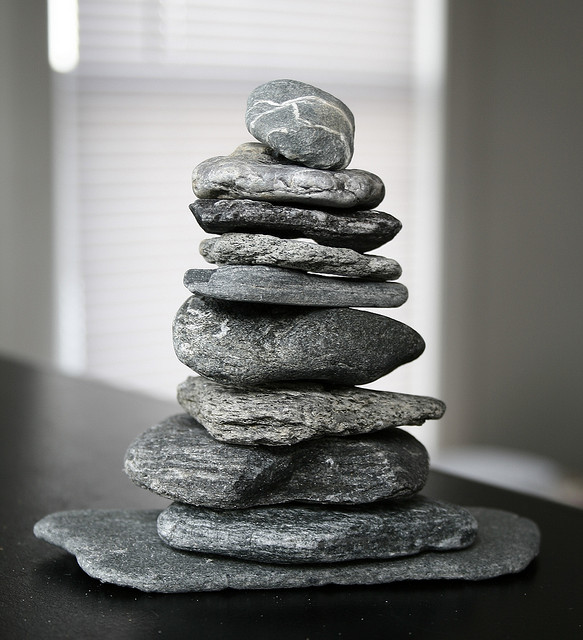Basketball MVP Allen Iverson famously had to take it on the chin for his poor attitude and memorable soundbites about practice. Still, western culture sees practice as a means to an end. Practice is the necessary evil we must endure on the path to musical bliss.
The problem with that western concept is that will power alone can’t sustain us through that 10,000 hours of must-do time on the chin rest. And no amount of parental nagging will can create a Sarasate Tarantella like the one I heard 12 year old violinist Karen Ferry play today.
Then how and when can we achieve true mastery and harmony with our instrument? The answer is simple: we must learn to be successful now. The mind that says “I wish I could play like that” isn’t the mind that will bring us the joy we all seek from music from our music.
Go East
In the west, we’re all about building, doing and achieving. We’re constantly on the move, our minds are buzzing and there’s no switch to turn it off. But look to the east, to the traditions of Buddhism, Yoga and meditation. These traditions seek a quiet mind. The word “practice” takes on an entirely different connotation.
Practice is not a Verb
We all have our favorite unit practice routines, etudes and scales. They’re all important and all can be extremely helpful. But without a mindful attitude they’re of little value. It’s too easy to forget the miracle and joy music brings us during endless drills of a difficult passage. And it’s far too common for parents to forget the great privilege they enjoy in their violin teacher’s devotion to their children.
So start by entering the practice room or teaching studio as a sacred space. You are about to enter a new realm, a wonderful and refreshing escape from the madness of everyday life. Take a moment to separate this time from the rest of your day, to release your mind from expectations and deadlines. To change from doing to being. Light a candle to remind yourself, that your practice (noun) has arrived, if only for a few minutes. Then play a simple Tonalization. Enjoy the beautiful sweep of your bow across the strings. Revel in the vibrant, ringing tone your instrument is producing.
You are already successful
Belgian Violinist and educator Kun Rens describes his working process as flow.. It is that narrow range of task that is at once challenging but clearly attainable. This is squarely where the content of our practice belongs. Making good choices about what we choose to prepare and perform is our path way and destination.
Choose Wisely
As a teacher, I’d be delighted to have a student ask me about starting a new and challenging musical selection, especially if it’s rooted in a genuine love for the music. And if that student isn’t quite ready for that challenge, I’d find a way to channel the energy that created the desire. But our most important work together will be in creating a cascade of small successful moments during the lesson. And then giving the student and/or family the tools to continue that process during the week. So we pick our battles carefully, because I’d like you to play Lightly Row like an artist. Do that, and you’ve captured the essence of the work we’ll be doing for many years to come.
Practice Zen: Accept What Is Now
Your definitive concerto performance is not the result of wanting, wishing or striving. It is attainable in the moment, but elusive to practicers who are battling with the moment. If you are attached to an outcome, it’s unlikely you will achieve that outcome.
Stated like a Buddhist, you cannot become successful. You either are or you aren’t. That’s the choice you make every time that violin is in your hands.
Here are some habits of mindful practice:
1. Allow much more preparation time than you think you need to polish a piece for performance
2. Focus your practice session on a specific challenge that you can complete in 5 or 10 minutes at most
3. Leave your instrument case open. An impromptu 5 minute session can be a wonderful surprise.
4. Approach your violin time with curiosity and a sense of experimentation. This creates an expansive feeling around your practice.
5. Be inspired by great art every day. Never skip.
6. Never take on a musical challenge that is driven by your ego
There’s no shortage of how-to articles about the violin. There are more method books than you could cover in a lifetime. All the information you need is freely available. Wonderful musicians abound in recording and in concert.
The one thing that brings it all together: the work you do, the art you create every moment you practice with a curious, patient, and quiet mind. Practice is our blessing to enjoy. Approach it with honor and an open heart. Or not at all.
